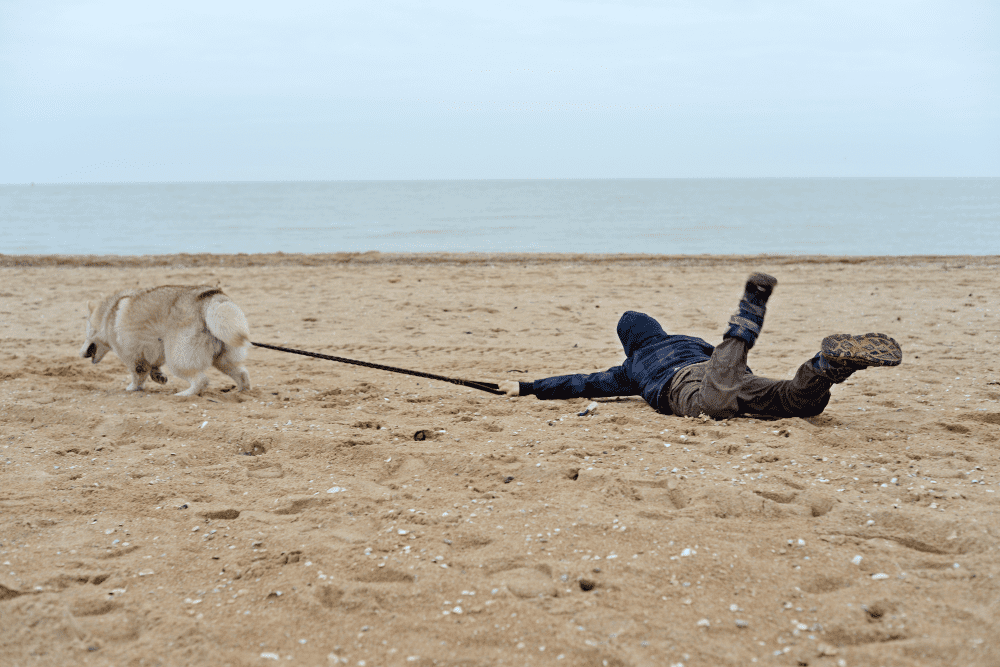Dog walkers might want to consider investing in protective headwear: research has found a surprising link between brain damage and leashed dogs. According to John Hopkins University researchers, traumatic brain injury is the second most common injury among adults treated in the United States for injuries sustained while walking leashed dogs.
Life is never without risk – but with more and more people adopting dogs since the COVID-19 pandemic, researchers felt it could be worth looking into some of the downsides of leashed pooch parenting.
“According to a 2021–2022 national pet ownership survey, nearly 53 percent of US households own at least one dog,” says Ridge Maxson, the study’s first author and a third-year medical student at The Johns Hopkins University, in a statement. “Although dog walking is a common daily activity for many adults, few studies have characterized its injury burden. We saw a need for more comprehensive information about these kinds of incidents.”
The team consulted the National Electronic Injury Surveillance System database to look for injuries sustained while walking dogs on leashes between 2001 and 2020, amounting to 42,659 incidents. They discovered age and gender differences in the number of reports, with half being aged between 40 and 64, and 75 percent of dog walking injuries happening to women.
The injuries were mostly the result of falling after getting tangled in the leash, pulled over, or tripped up as the human was walking their leashed dog. The number one most common injury was finger fracture. Painful, not too devastating – but then things took a turn.

Even little dogs can demonstrate remarkable strength when they spot something interesting in the distance. Image credit: Dovzhykov Andriy / Shutterstock.com
The second most common injury related to dog walking was traumatic brain injury, defined by the American Association of Neurological Surgeons as a “disruption in the normal function of the brain that can be caused by a blow, bump or jolt to the head, the head suddenly and violently hitting an object or when an object pierces the skull and enters brain tissue.”
That fracture’s not looking as bad now, huh?
The traumatic brain injuries linked to dog walking were mostly concussions,non-concussive internal injuries including contusions (bruising), and epidural and subdural hematomas, which are bleeding above and below the brain’s outer membrane respectively.
The biggest risk of brain damage was among older dog walkers, who were 60 percent more likely to sustain a traumatic injury compared to younger people. Reports of injuries related to dog walking also quadrupled throughout the 20-year study period, which could reflect the uptick in dog ownership in recent years.
“Clinicians should be aware of these risks and convey them to patients, especially women and older adults,” said Dr Edward McFarland, the study’s senior author and director of the Division of Shoulder and Elbow Surgery at Johns Hopkins Medicine, who adds that the risks shouldn’t outweigh the need for leashing dogs in certain spaces.
“We encourage clinicians to screen for pet ownership, assess fracture and fall risk, and discuss safe dog walking practices at regular health maintenance visits for these vulnerable groups. Despite our findings, we also strongly encourage people to leash their dogs wherever it is legally required.”
The study is published in Medicine & Science in Sports & Exercise.
Source Link: Traumatic Brain Injury Risk Is Bizarrely Linked To Walking A Leashed Dog